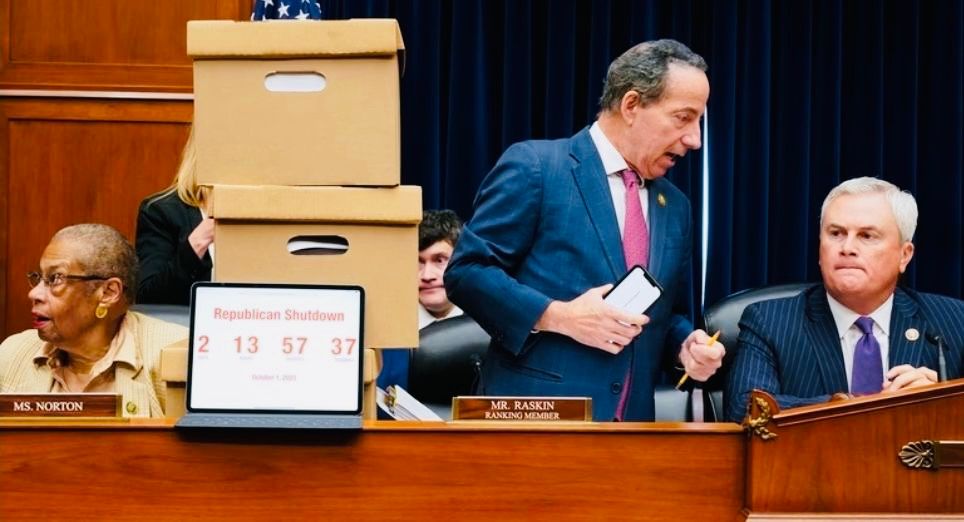Right with the deadline approaching, Congress struck a continuing resolution delaying a government shutdown to continue negotiations. We are safe for now; rather, we are safe for another 45 days, when we might find ourselves back in the same position. Recently, the public has felt that Congress has frequently failed its citizens that they are supposed to represent by allowing government shutdowns that have absolutely zero political value far too often. A government shutdown halts all non-essential federal services due to a lack of funding because of the inability of Congress to pass annual federal spending bills by the start of the new fiscal year at midnight on Oct. 1. Within the past five years, the government has shut down three times, all of which happened during the Trump administration, and it has increasingly become a threat amongst politicians to further their political agenda. However, anyone with a rational outlook on politics would preach that government shutdowns have extremely little value relative to the consequences that occur when shutdowns happen.
Congress is meant to represent the people and act on behalf of the will of their respective states and districts who voted them into power, but when they allow a government shutdown to occur, they are failing their constituents. In a study done by Pew Research Center before the 2019 government shutdown, 58% of U.S. adults believed that a government shutdown was a serious problem, and 22% believed it was somewhat of a serious problem. This was not just a sentiment felt during the highly controversial Trump presidency, but even historical polls highlight that American citizens predominately disagree with any form of the government shutting down. When congressional officials allow the government to shut down, they no longer act on behalf of the public’s desire and infringe on the promise they made to the people of the United States.
Congressional officials not fulfilling their duty to their constituents benefits absolutely no one involved and only angers their voters. Contrary to how Congress often acts, citizens are not blind, nor are they inept, and they can tell when their elected officials are not serving them. There is a reason why Politico reported that “Republicans are feeling a keen sense of apprehension that their party will suffer badly should a shutdown transpire.” Voters continue to vocalize their dislike for government shutdowns, and their contempt for politicians who fail to negotiate with the ultimate goal of a compromise, throughout the media and in the polls. Politicians continue to use a political threat that is clearly opposed by the constituents that vote for them and only brings animosity towards them during their tenure in Congress.
Government shutdowns tend to harm the economy that the government officials, who allow these shutdowns, claim that they are attempting to strengthen. The minute a shutdown occurs, hundreds of thousands of workers are furloughed, and even more will continue to work in the hopes that they will be reimbursed at a future date. Often, many of these workers are eventually compensated for the work they lost during the shutdown, meaning millions of dollars are spent on paying back federal workers who were unable to work while Congress squabbled over their staunchly partisan ideas. Museums and national parks will be blocked from the public and closed, harming the surrounding small businesses that rely on these tourist attractions to garner customers. Goldman Sachs recently reported that economic growth would reduce by 0.2% each week that a shutdown would last. The economy and workers will suffer because of a shutdown, and yet Congress allows it to happen under the guise of fighting for a spending bill that protects the future of the American economy.
The last government shutdown, which the next one could mimic due to the status quo of partisanship and contention in politics from 2019, lasted 34 days and cost the government a total of $11 billion. Republicans who complain about the country’s deficit and Democrats who preach that we need to increase spending in specific segments are willing to potentially allow $3 billion to be permanently lost from the federal government. Even if the shutdown lasts less than 34 days, taxpayer money is permanently lost, and when congressional officials refuse to compromise, it sends a clear message that their priority is not federal spending nor the economy but their political power agenda. There is only one word to describe any politician who refuses to come to the table and compromise for the benefit of the United States: hypocrisy.
The only politicians who refuse to avoid a government shutdown are extremists on the spectrum of their party and hypocrites in a misguided attempt not to further their agenda but their own political power. All government shutdowns end; they have to. But politicians will hold out and force a government shutdown to pander to their extremist supporters and force the attention of U.S. politics on them. Eventually, they will compromise, and a federal spending bill will be passed, but only after they can spew their irrational and staunchly partisan ideology. However, the attention they gain eventually subsides, and what these politicians need to realize is that their agenda is never furthered because the rest of the country sees right through their act.
We went 15 years without a government shutdown; now, we may have four in five years. The partisan power plays, contestation and irrationality need to end; it serves no one and fulfills no means. Politicians need to focus less on attention, winning and power, and return to what their job is meant to be: serving the American people. They work for us, not the other way around, and it is time that we make them realize that forcing a government shutdown has no political value because we, the people, say it doesn’t.
Luca Amaturo, FCRH ’26, is a communications & media studies major from Marlboro, N.J.










































































































































































































